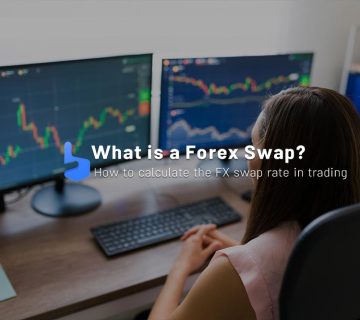What you are about to read:
In the dynamic world of forex trading, slippage is a phenomenon that traders often encounter but may not fully understand. Slippage in forex refers to the difference between the expected price of a trade and the price at which the trade is actually executed. This discrepancy can occur due to market fluctuations, liquidity variations, delays in forex order processing, or broker execution methods.
While slippage is a common occurrence in fast-paced markets, its impact on traders can be significant, affecting trade outcomes, profitability, and overall trading experience. In this article, Brokerland delves into the details of this phenomenon in forex trading, examining its causes, effects, and strategies for effective management and reducing its impact on traders.
What is Slippage in Forex and Why Does it Occur?
Slippage in forex refers to the difference between the expected price of a trade and the price at which the trade is actually executed. This can happen when there is a discrepancy between the price a trader sees when placing an order and the price at which the order is filled.
Slippage can be positive or negative: positive one occurs when a trade is executed at a better price than expected, while negative one occurs when a trade is executed at a worse price. Several factors contribute to this, which we will examine further:
Market fluctuations: It often occurs during periods of high market volatility. This happens because when markets are volatile, prices can change rapidly, leading to significant delays in order execution. Traders may place an order at a certain price, but by the time the order reaches the market, the price has already changed, resulting in slippage.
Liquidity: It is more pronounced in markets with lower liquidity or during times of low liquidity. In such conditions, a buyer or seller may not be available at the desired price level, resulting in the trade being executed at a different price.
Impact of large orders in the market: Large orders or the presence of smart money can cause slippage as they can move the market. When a trader executes a large order, especially in a market with limited liquidity, it can deplete available liquidity at the desired price level, causing the remaining order to be filled at less favorable prices.
Order processing speed: This issue can arise due to delays in order processing by forex brokers. If the price changes significantly between the time of order placement and execution, the order may be filled at a different price.
Broker Execution: The quality of execution provided by a broker can impact slippage in forex. Some brokers, like OmegaFinex Broker, offer direct market access (DMA) and have strong liquidity providers, which can help reduce it. On the other hand, brokers with poor execution quality may struggle to fulfill orders at desired prices, leading to slippage.
Ways to Manage Slippage in Forex
Managing slippage in forex involves employing various strategies and techniques to mitigate its impact on trade execution. As mentioned above, it can occur due to market fluctuations, liquidity conditions, order size, and broker execution speed. Here are several ways to effectively manage it:
Use Limit Orders Instead of Market Orders
Use limit orders instead of market orders to specify the exact price you want to enter or exit a trade. A limit order ensures that your trade is executed at a specific price or a better price if available in the market. By using limit orders, you have more control over the price at which your trade is executed, which can help reduce the risk of negative slippage in volatile market conditions.
Avoid Trading During High-Impact News Events
Stay informed about upcoming economic news using economic calendars available on reputable websites like TradingView, MQL5, MyFXBook, or Forex Factory, and refrain from trading during high-impact events such as central bank announcements, unemployment rate reports, or geopolitical developments.
Major forex news releases can cause significant market fluctuations and widen spreads, increasing the likelihood of slippage. It is advisable to wait until after the news event to resume trading.
Trade During High-Liquidity Market Hours
Select active trading sessions and focus on trading during peak market hours when liquidity is higher. The forex market has increased liquidity during overlapping trading sessions (e.g., London and New York sessions) which is one if the kill zones, can reduce the risk of slippage in forex. Trading during low liquidity periods, such as late Asian sessions or weekends, can increase the likelihood of slippage due to wider spreads and fewer market participants.
Use Appropriate Stop Loss to Manage Slippage
Set appropriate stop loss levels. When placing stop loss orders, place them slightly away from key support or resistance levels to avoid premature triggering during price fluctuations. For useful tips on setting appropriate stop losses, you can read articles on Guaranteed Stop Loss Orders (GSLO).
Some brokers offer guaranteed stop loss orders that ensure your stop loss order is executed at a specified price regardless of market conditions. However, GSLOs may come with additional costs. Read the Stop hunting article to learn important tips fo setting a wise stop loss in trading.
Monitor Broker Execution Quality
Choose a reputable forex broker like LiteForex or RoboForex with a proven track record of reliable order execution and minimal slippage. Also, test the speed of order execution by trading on a demo account and monitoring order execution speed in different market conditions.
Diversify Trade Volumes to Reduce Slippage Impact
Avoid large orders and instead, divide them into smaller, manageable positions. This can help reduce the impact of large trades on market liquidity and minimize slippage in forex.
Regularly Review Trade Performance to Manage Slippage
Track occurrences of slippage in your trading journal and analyze its patterns in various market conditions. Use insights gained from analyzing your trade performance and statements to adjust trading strategies and risk management techniques for better management.
By implementing these strategies, traders can effectively manage slippage and improve the overall quality of trade execution in the forex market. Adaptability and responsiveness to changing market conditions are essential to minimizing its impact on trading outcomes.
Negative consequences of slippage in forex trading
Slippage in forex can have several side effects that affect traders’ profitability and overall trading experience. While a common occurrence in financial markets, excessive or unmanaged slippage can lead to the following consequences:
- Increased transaction costs: It can result in trades being executed at prices lower than expected, which leads to higher transaction costs. This is especially important for high-frequency traders or those trading large volumes, as frequent slippage can decrease profits over time.
- Profit reduction: It can negatively impact traders’ profitability by causing trades to be executed at worse prices, which can affect the overall performance of trading strategies. Unmanaged slippage can lead to unexpected losses and reduce the effectiveness of trading systems.
- Issues with Stop Loss execution: It can cause stop-loss orders to be executed at prices different from the specified level. If prices move rapidly against the trader’s position, especially during periods of high volatility, this can result in larger-than-expected losses.
- Unintended position size: It can affect position size calculations, especially for traders using leverage or trading large volumes. Unexpected slippage can lead to larger positions being opened or closed than intended, increasing risk exposure and impacting portfolio management.
- Impact on trading strategies: It can disrupt the performance of trading strategies that rely on precise entry and exit points. Short-term price movement-based strategies or scalping techniques may be particularly sensitive to slippage, affecting the stability and effectiveness of trading results.
- Loss of confidence: Repeated experiences of slippage can undermine traders’ confidence in their ability to execute trades effectively. This loss of confidence may lead to hesitation in decision-making or reluctance to enter specific market conditions, ultimately affecting trading performance and psychology.
- Negative user experience: To mitigate the side effects of slippage in forex, traders can employ risk management strategies such as using limit orders, avoiding trading during high volatility periods, selecting reputable brokers with reliable execution like Orbex and Fibo Group, and monitoring its patterns over time. Through active management and adaptation of trading methods based on this, traders can minimize its impact on profitability and overall trading success.
Summary
Slippage in forex remains a significant consideration for traders when decide to learn forex trading, following the complexities of financial markets. Understanding the causes and consequences of this issue is essential for traders to develop strong risk management strategies and optimize trading performance.
While complete elimination of slippage may not be possible, traders can utilize various techniques such as using limit orders, avoiding high volatility periods, and selecting reputable brokers with reliable execution to minimize its impact. By adjusting trading strategies accordingly, traders can enhance their trading experience, reduce potential losses, and strive for consistent profitability in forex markets.











